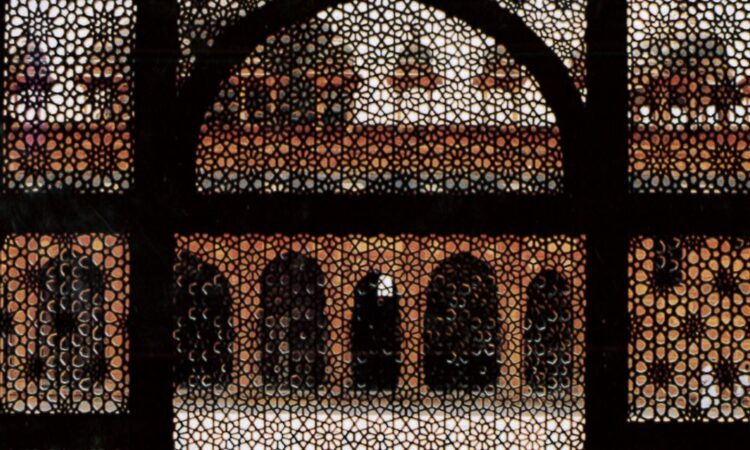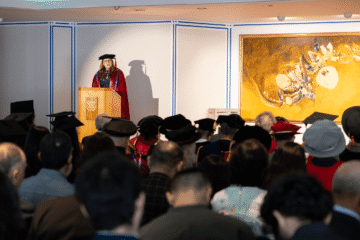In this 21 min interview Professor Ali Asani discusses the development of the ginans, Ismaili devotional tradition in South Asia, within the larger literary and religious traditions of the Subcontinent. He also examines the Khojki script in which many of the ginans, once committed to writing, were transcribed.
In this interview, Professor Ali Asani addresses the following questions:
1. What are the ginans? 00:38 – 01:53
2. Why the title ‘Ecstasy and enlightenment’ for the book? 01:54 – 04:26
3. What do you mean when you say that the ginans belong to larger indo-Muslim folk traditions? 04:28 – 06:06
4. Can the ginans be categorised as Islamic or Hindu? Are these categories justified in the context of the ginans? 06:07 – 08:44
5. What are the challenges of studying the ginans in manuscripts? 08:45 – 11:23
6. In what way is the community’s engagment with the ginans changing? 11:26 – 14:47
7. How does your book contribute to the scholarship on the ginans? 14:48 – 16:15
8. What is the scope of further academic research on the ginans? 16:16 – 19:29
9. Being old texts, are the ginans relevant to us today? 19:30 – 21:39
The ginans are a large corpus of hymns and poems composed in a variety of Indic languages and attributed to a series of preacher–saints who propagated Ismaili Islam in the subcontinent over several centuries. In the book Ecstasy and Enlightenment, Professor Asani provides an overview as well as a discussion on specific aspects of the ginans such as their history; themes, forms, prosody and melodies; their devotional character and role in Ismaili religious life; the symbolism of divine love and spiritual marriage; and addresses some of the questions pertaining to the issue of their authorship.
Ecstasy and Enlightenment
The Ismaili Devotional Literature of South Asia
This book is now available to read and download free of charge from Bloomsbury Open Access.
Find out more







